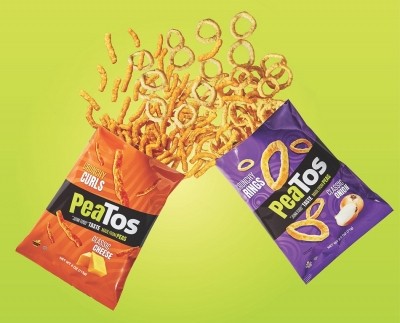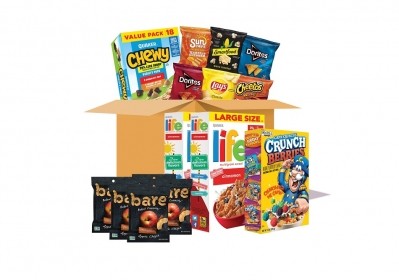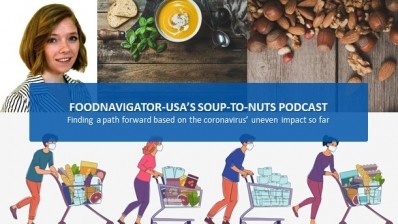Emerging brands with ‘turnkey’ solutions more likely to win shelf space during coronavirus pandemic

“We continue to see massive out-of-stocks – whether it is the now famous paper category with toilet paper, paper towels, etc, deli meats and hotdogs and things like that, anything frozen, the meat category in general keep getting blown out,” said Kings Food Markets chief merchandising and marketing officer Stephen Corradini.
He explained to attendees during a webinar hosted by the Specialty Foods Association that the problems, which began in early- and mid-March with hoarding, have continued to move through the supply chain, causing certain distributors’ fill rates to drop into the teens, plant closures, and general disruptions with core brands.
“The supply chain is broken at this point,” he said.
But, he added, Kings Food Markets, which is based in New Jersey and also serves New York and Connecticut, and other retailers still need to fill their shelves to meet consumer demand as part of the nation’s critical infrastructure responding to the COVID-19 pandemic, and as such many are accelerating onboarding and trial of new brands and supplier partners.
“We are not taking vendor meetings in person, certainly, but we look at submissions and decks and things like that. But the first question that my team will be asking you is where are you at in being able to get to market? Are you part of a distributor currently? I think that ability to be turnkey in this time frame is crucial,” Corradini said.
Kings Food Markets has added more than 50 new distributor and supplier partners in the last six weeks
He added that Kings Food Markets has added more than 50 new distributor and supplier partners in the last six weeks and has brought on dozens of emerging and regional brands as well as additional products from existing partners that previously wouldn’t have made the cut.
For example, Corradini said, Kings Food Markets had always stocked Goya brand canned beans, but held back on other products as several buyers perceived Goya as an ethnic brand. But as demand grew, the retailer brought on the brand’s frozen fruit and vegetable products with the recognition that “beyond being incredibly high quality purveyor, they are effectively a national brand at this point … so for us it was an opportunity to jump on something new.”
Similarly, when stock of Hebrew National and other well-known hotdog brands fell, Kings brought on Brooklyn Bangers – a local hotdog and sausage company that might have had a slower build-up if not for need during Covid-19, Corradini said.
And finally, he noted, Kings was excited to bring on poultry products from the regenerative agriculture brand Cooks Venture because it shared the retailer’s values and could meet demand quickly.
“We had been looking at [Cooks Venture] but hadn’t pulled the trigger on it. But it is a regenerative agriculture program, incredibly high quality poultry, beautiful packaging and, again, it is something on their end they were able to spin up quite quickly, get us product, commit to us we would have a certain amount of product over a specific period of time, and as well as bulk,” offer a pre-packaged option that stores can sell when staff are unavailable, he explained.
Understand who retailer buyers represent
As much as Kings Food Markets and other retailers want to stock their shelves fully, they also want to stay true to their values, making it essential that brands pitching them now – as before COVID-19 – understand their core values and what they are looking for.
“We want to do great sales, but we also don’t want to lose ourselves in the process, and that is the important part for us to understand, and particularly for brands that are presenting to us. … Understand the retailer you are talking to, understand who they are and what they want to be even in this time,” Corradini said.
Which categories and products do consumer still want?
In addition, he noted, retailers are more open to new brands and products in categories that are hard hit and selling fast.
These include paper products, meal solutions, baking goods – including flour, sugar, chocolate chips, cake mixes – as well as ethnic sauces and snacks that can easily add variety to consumers’ home menus without requiring additional cooking skills, he said.
Coffee also “is doing very well for obvious reasons that people aren’t at work or driving through the Starbucks or whatever else,” he said, adding that premium tea is also benefiting.
In addition, “nutbutters initially did very well … as people were looking for protein and meal solutions,” but now it is full of “internal contradictions,” as brands flounder with out-of-stocks and consumers buy whatever is available on shelves, he said.
In terms of salty snacks, Corradini said, Americans’ desire for comfort food and indulgence is pushing them to buy more conventional products with which they are familiar and fewer better-for-you options. However, he added, “better-for-you snacks are still doing well. They are not a trouble category space for us. But they are not as well though as conventional big bags of potato chips and things like that.”
Overall, Corradini said, many consumers are still reacting simply to what is on store shelves, but as that changes, retailers are starting to see repeat purchases of new brands based on the quality of the experience with the product and at the retail level – making it essential that brands and retailers work together seamlessly.

















